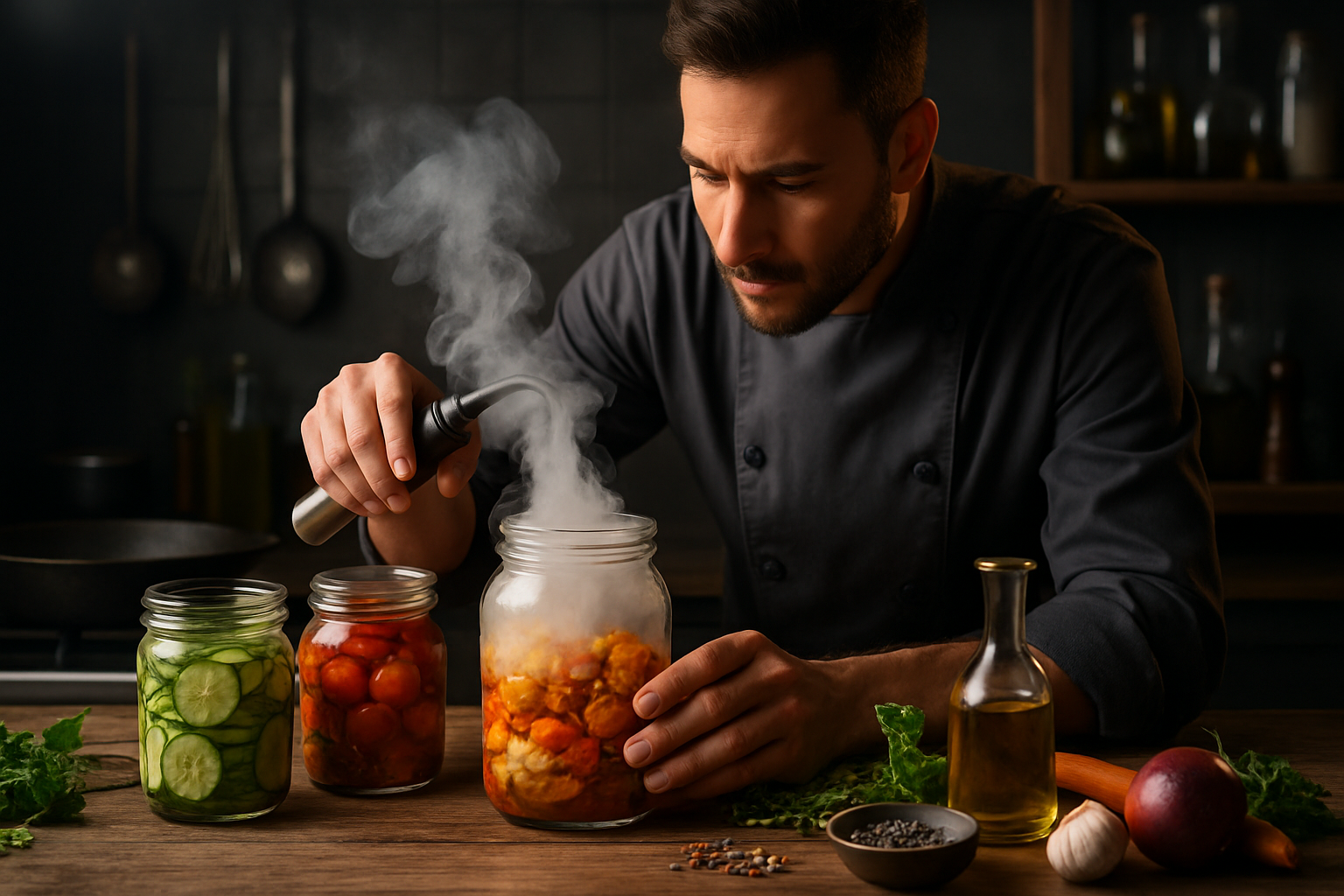Culinary Alchemy: Transforming Everyday Ingredients
Imagine turning humble pantry staples into gourmet delights. Culinary alchemy isn't just for professional chefs – it's an art form anyone can master. This exploration of ingredient transformation will revolutionize your approach to cooking, elevating simple meals into extraordinary culinary experiences. Get ready to unlock the hidden potential in your kitchen!

Pickling: Beyond the Cucumber
Pickling is an age-old preservation technique that’s experiencing a modern renaissance. While cucumbers might be the first thing that comes to mind, almost any vegetable can be pickled, creating tangy, crunchy delights. Quick pickling, or “quickles,” allows you to transform fresh produce in just hours. Try pickling thinly sliced radishes in a mixture of vinegar, sugar, and salt for a zesty taco topping. Or experiment with pickled watermelon rinds for a surprising Southern delicacy. The key to successful pickling lies in the balance of acid, salt, and sugar. Play with different vinegars, such as apple cider or rice vinegar, to create unique flavor profiles. Pickled ingredients add brightness and complexity to dishes, elevating sandwiches, salads, and even cocktails.
Infusion: Flavors in Fusion
Infusion is a simple yet powerful technique that allows you to imbue one ingredient with the essence of another. This method works wonders with oils, vinegars, spirits, and even water. To create herb-infused olive oil, gently heat fresh herbs in oil, then strain and bottle the flavorful result. Use it to add depth to salad dressings or as a finishing touch on grilled vegetables. For a sweet treat, try infusing honey with lavender or vanilla. The possibilities are endless – imagine chili-infused chocolate or garlic-infused ghee. When infusing liquids, remember that heat can speed up the process but may also alter delicate flavors. Cold infusions take longer but can preserve the nuances of more subtle ingredients. Experiment with different combinations to create your signature infusions.
Fermentation: The Flavor Revolution
Fermentation is a natural process that not only preserves food but also creates complex flavors and boosts nutritional value. While many are familiar with fermented products like yogurt and sauerkraut, the world of fermentation extends far beyond. Try your hand at making kombucha, a fermented tea drink that’s both refreshing and probiotic-rich. Or explore the realm of fermented hot sauces, where chili peppers develop deep, funky flavors over time. The key to successful fermentation is creating the right environment for beneficial bacteria to thrive. This often involves salt, which inhibits harmful bacteria while allowing good bacteria to flourish. Temperature and time also play crucial roles in the fermentation process. With practice, you can create unique, tangy flavors that add depth and complexity to your culinary creations.
Smoke and Mirrors: Infusing Smoky Flavors
Smoking isn’t just for meats – it’s a versatile technique that can add depth and complexity to a wide range of ingredients. While traditional smoking requires specialized equipment, there are many ways to infuse smoky flavors into your cooking at home. Try using a stovetop smoker to impart a subtle smokiness to vegetables, cheeses, or even cocktail ingredients. For a quick smoky flavor boost, use smoked salt or smoked paprika in your seasonings. Liquid smoke, while controversial among purists, can be a convenient way to add smokiness to sauces and marinades. For a unique twist, try cold-smoking delicate ingredients like butter or cream. The resulting smoky flavors can elevate dishes from ordinary to extraordinary, adding a layer of complexity that will impress even the most discerning palates.
Culinary Alchemy: Tips and Tricks
• Use a candy thermometer for precise caramelization of sugar
• Experiment with different vinegars for unique pickling flavors
• Try infusing oils with dried mushrooms for an umami boost
• Use airlock lids for safer, more consistent fermentation
• Invest in a handheld smoker for easy indoor smoking
In conclusion, culinary alchemy is about more than just following recipes – it’s about understanding the transformative power of cooking techniques. By mastering these methods, you can elevate simple ingredients into extraordinary dishes, expanding your culinary repertoire and delighting your taste buds. Remember, the key to successful experimentation is curiosity and a willingness to learn from both successes and failures. So, step into your kitchen laboratory and start transforming your everyday ingredients into culinary gold!






